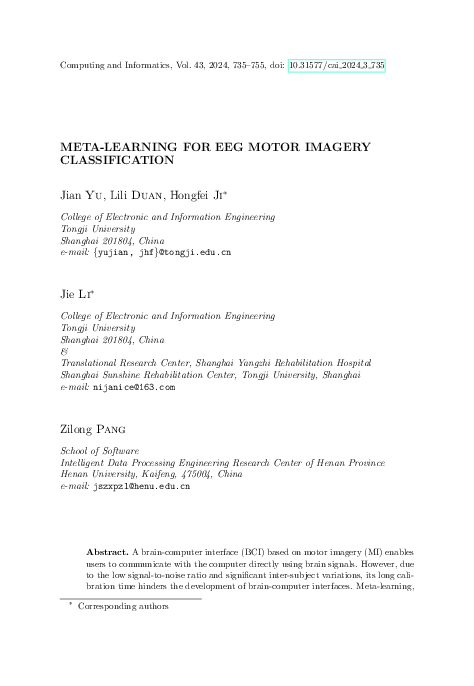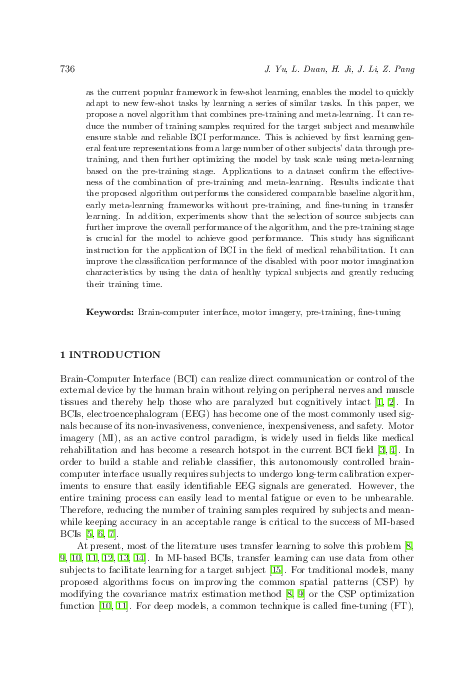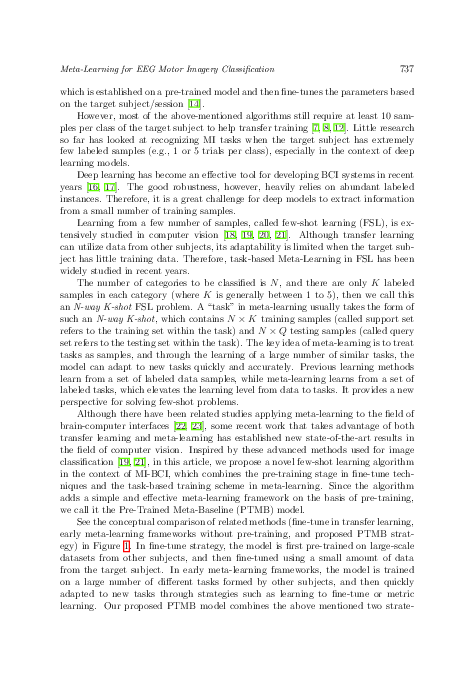Meta-Learning for EEG Motor Imagery Classification
keywords: Brain-computer interface, motor imagery, pre-training, fine-tuning
A brain-computer interface (BCI) based on motor imagery (MI) enables users to communicate with the computer directly using brain signals. However, due to the low signal-to-noise ratio and significant inter-subject variations, its long calibration time hinders the development of brain-computer interfaces. Meta-learning, as the current popular framework in few-shot learning, enables the model to quickly adapt to new few-shot tasks by learning a series of similar tasks. In this paper, we propose a novel algorithm that combines pre-training and meta-learning. It can reduce the number of training samples required for the target subject and meanwhile ensure stable and reliable BCI performance. This is achieved by first learning general feature representations from a large number of other subjects' data through pre-training, and then further optimizing the model by task scale using meta-learning based on the pre-training stage. Applications to a dataset confirm the effectiveness of the combination of pre-training and meta-learning. Results indicate that the proposed algorithm outperforms the considered comparable baseline algorithm, early meta-learning frameworks without pre-training, and fine-tuning in transfer learning. In addition, experiments show that the selection of source subjects can further improve the overall performance of the algorithm, and the pre-training stage is crucial for the model to achieve good performance. This study has significant instruction for the application of BCI in the field of medical rehabilitation. It can improve the classification performance of the disabled with poor motor imagination characteristics by using the data of healthy typical subjects and greatly reducing their training time.
reference: Vol. 43, 2024, No. 3, pp. 735–755


